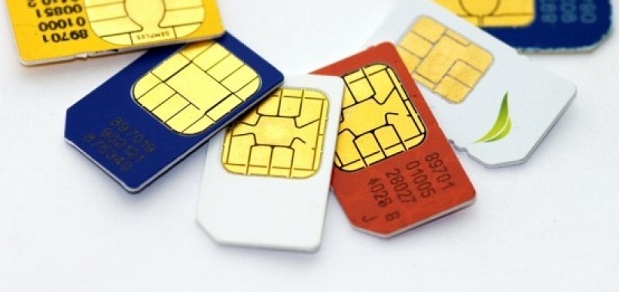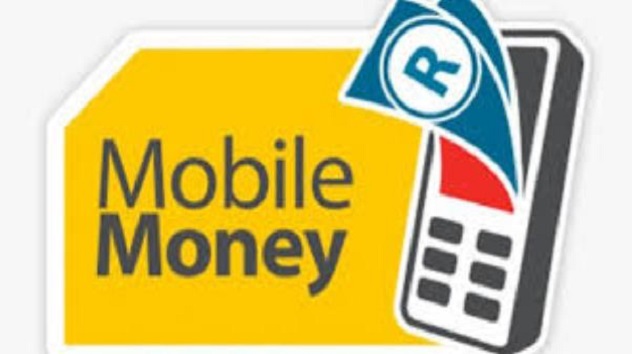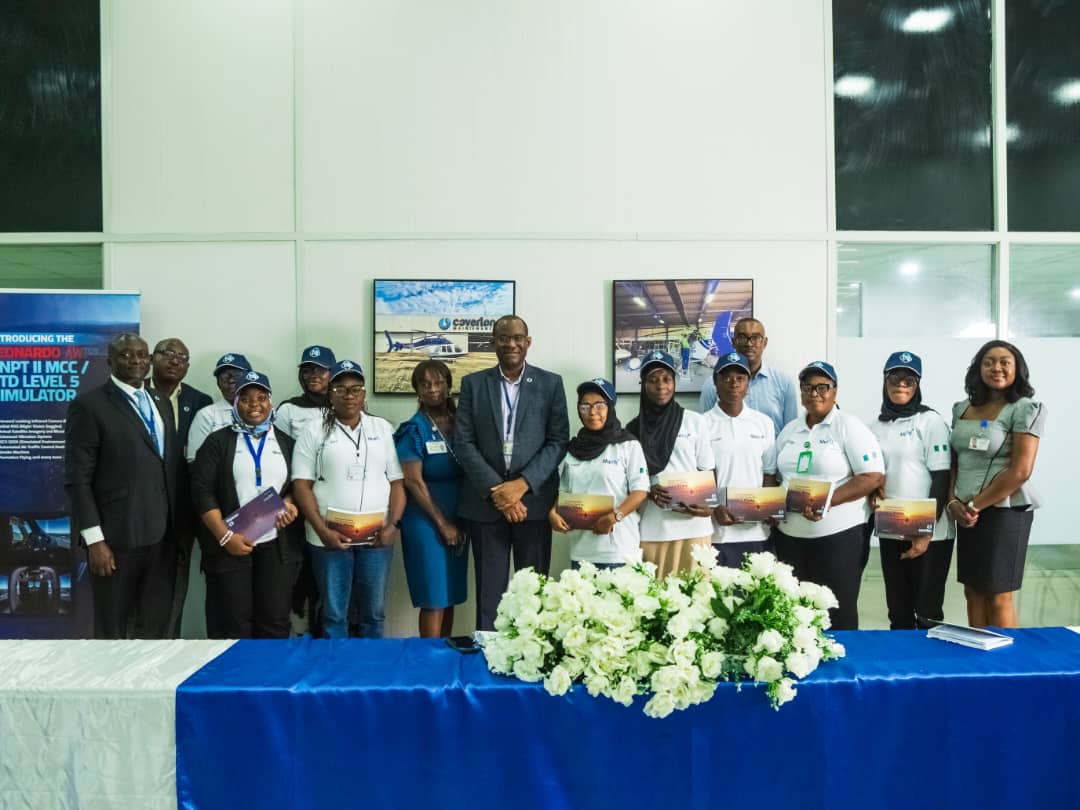Telecom
Telcos Move to Secure USSD Transaction Channel

Telecommunications operators providing Unstructured Supplementary Service Data (USSD) platform are requesting help from money deposit banks to effectively secure the platforms against hackers, Nigeria CommunicationsWeek has learnt.
As part of efforts to offer customers 24X7 transaction services, banks are now using USSD code for their customers to make payments or transfer money with codes such as *737#, *966# among others.
USSD messages create a real-time connection during a USSD session. The connection remains open, allowing a two-way exchange of a sequence of data. This makes USSD more responsive than services that use SMS.
Laja Sorunke, group head, IT and Digital Banking Control, UBA, said that the demand by telecommunications operators for banks to help fund the cost of protecting endpoint of USSD platform which is not well secured arises over the concerns expressed by banks to ensure that customers data and money are secured.
Sorunke disclosed this at this year’s Hackcess cyber security conference held in Lagos. He noted that a couple of banks have been attacked by Ransonware hence the need to secure are channels linked to their network including the USSD.
“To further secure the USSD channel, CBN has directed banks to ensure that USSD based transactions are authenticated. For banks, because the endpoint of this platform is not well secured that is the reason we have reduced transaction limit on the platform,” he said.
Also speaking at the event, Hassan El Chami, chief technology officer, MTN Nigeria, said that MTN is now focusing on internet security more than some years back because some 40 percent of her subscribers in Nigeria are data users.
“We have to protect our customers’ data as they browse on the internet. More so, security of SIM cards are very important to us as subscribers’ bank details are saved in their SIM cards, and when this is compromised there is problem for such subscriber,” he said.
He stressed the need for organizations to set a roadmap for improving security of ‘Things’- he described as anything that has digital identity, even as the world prepares for exponential growth in Internet of Things (IOT).
Emeka Nwakanma, founder, HackCess, said that digitalization of operations by organizations poses security challenge where hackers tends to bring organizations down as well as target individual’s data with the aim of stealing their money.
This according to him is the essence of Hackcess cyber security conference to create awareness on the risk of cyber threats as well offer ways organisations could protect their networks against cyber- attacks.
“The impact of cyber- attacks in Nigeria is huge and cannot be ignored anymore. We want to change the reactive approach of Nigeria organizations to cyber-attacks to pro-active. However, awareness is stepping up as at today because cyber security threats have become main stream. It is no longer issue of technology experts; hacking is indeed happening in Nigeria and the risk is real,” he noted.
Telecom
GSMA Reveals Sub-Saharan Africa as Mobile Money Epicentre

Mobile money has surpassed two billion registered accounts, with over half a billion active monthly users across the globe in the 25 years since its launch.

Leading this market growth is Sub-Saharan Africa with a total of 1.1 billion registered accounts and more than 280 million active 30-day accounts, as recorded at the end of 2024.
This is based on the State of the Industry Report on Mobile Money 2025, compiled by the GSM Association’s (GSMA’s) mobile money programme data and insights team.
Now in its 13th year, the report details the progress of mobile money, with the latest edition indicating transaction volumes and values for mobile money accounts experienced double-digit growth in 2024.
Over 108 billion transactions worth $1.68 trillion were processed through mobile money accounts, for the period under review. This is equivalent to $3.2 million worth of transactions per minute, says Vivek Badrinath, GSMA director-general.
Year-on-year, transaction volumes increased by 20%, while transaction values grew by 16%, up from a 13% increase in 2023.
According to the report, the industry took 18 years to achieve one billion registered accounts and 250 million active users from 2001, doubling in size in the following five years.
Mobile money accounts have “consistently” maintained growth rates above 10% since 2020. In 2024, registered accounts increased by 14% year-on-year to 2.1 billion, while active 30-day accounts grew by 11% to reach 514 million, the report reveals.
Badrinath highlights that Sub-Saharan Africa remains the epicentre of mobile money, accounting for most new registered and active accounts.
“Mobile money has emerged as a powerful driver of financial inclusion and economic growth. Its continued success depends on supportive regulatory environments that promote innovation and accessibility, and help unlock the full socio-economic potential.
“To ensure mobile money remains accessible, affordable and safe, it is vital for governments and regulators to work with financial service providers to support financial literacy programmes, empowering underserved populations and opening new opportunities for financial decision-making.
“Looking ahead, I believe we are well-positioned for the next wave of expansion, where mobile money emerges as the preferred payment service, driving business growth, strengthening economies and shaping a better future for all.”
The report also notes that mobile money continues to play a key role in economic development. By the end of 2023, the total gross domestic product (GDP) of countries with mobile money services was over $720 billion higher than it would have been without them, reflecting a 1.7% increase in GDP driven by mobile money.
“In Sub-Saharan Africa alone, year-on-year, mobile money added around $190 billion to GDP in 2023, demonstrating its sustained economic influence.”
Regional phenomenon
Mobile money is used to buy goods and services, save money and send money to friends and family – both at home and abroad.
Based on the report, the bulk of mobile money accounts in the Sub-Saharan Africa region was driven by adoption and use in East and West Africa.
East Africa was the leading driver of monthly active account growth in 2024, followed by Southeast Asia and West Africa.
Introduced as an offering for financial inclusion for the unbanked, mobile money offerings, such as East Africa’s M-Pesa, have become the region’s most popular mobile money platform.
According to the report, over two-thirds of registered accounts in 2024 came from Sub-Saharan Africa. In 2024, there were more than one billion registered accounts in Sub-Saharan Africa – twice as many as in 2020.
Compared to forecasts from 2019, the GSMA found that registered accounts grew faster than expected, with data from 2024 showing 75% more registered accounts in Sub-Saharan Africa than estimated.
“Growth in active 30-day accounts was driven by East Africa, which contributed 32% of new accounts in 2024, closely followed by Southeast Asia (28%). West Africa and South Asia contributed 21% and 19%, respectively. Double-digit growth in active monthly accounts in 2024 confirmed that millions continue to rely on mobile money for their daily financial needs.
“Between 2014 and 2024, the number of active 90-day accounts as a proportion of SIM cards in Sub-Saharan Africa rose from 10% to 39%. Across other regions, the highest ratio of active 90-day accounts to SIM cards was 8% in South Asia. While some countries in Sub-Saharan Africa can be considered relatively mature, there is still room for growth – both in Sub-Saharan Africa and in other regions.”
Southeast Asia recorded the second-fastest growth rate for active monthly accounts, behind the Middle East and North Africa.
“The region saw active 30-day accounts grow faster than registered accounts, supported by enabling regulatory environments in markets including Cambodia, Fiji, the Philippines and Vietnam.”
The GSMA also reveals that in East Asia and the Pacific many mobile money providers have evolved into full-service financial platforms, offering a broad range of products to match user needs. The most successful providers are often those who are actively innovating the breadth of their offerings, it says.
“Mobile money providers are increasingly offering adjacent financial services like credit, savings and insurance. As of June 2024, 44% of providers offered credit services, making it the most used adjacent financial product. Savings services were offered by around a third of providers, while insurance remains the least common with around 28% of providers offering it.”
Despite progress, the report highlights that several barriers to adoption remain, notably among women. It states that among 12 countries surveyed, eight continue to exhibit a gender gap in mobile money ownership, with little improvement since 2023.
“Limited awareness and low digital financial literacy are significant barriers, particularly for women. However, women who hold mobile money accounts are nearly as likely as men to have used them in the past 30 days.”
Badrinath states: “As we continue our work to close the usage gap, and drive digital and financial inclusion, it is hugely encouraging that almost 60% of mobile money providers have introduced digital skills initiatives. These efforts not only boost financial awareness and combat fraud, they also help to break down the barriers that prevent millions – especially women – from fully benefitting from mobile money services.”
Telecom
NASENI and Caverton Helicopters Launch Training of Female staff on UAV

National Agency for Science and Engineering Infrastructure (NASENI) and Caverton Helicopters have commenced the second batch of training for 10 selected female engineers and scientists from NASENI system-wide in Unmanned Aerial Vehicles (UAVs) technology.

Director Corporate Services, Caverton Helicopters, Mr. Ayodele Omueti (middle) in a group photograph with NASENI female UAV trainees and other Caverton Helicopters officials during the onboarding ceremony at the Caverton MRO Facility in Ikeja Airport, Lagos on Tuesday April 8, 2025.
The six-week training program, which kicked off on Monday 7th of April 2025 at Caverton’s training school in Ikeja, Lagos, is part of the NASENI-Caverton, (NASCAV) ongoing partnership agreement to strengthen the aviation mandate of NASENI.
The training is a key component of the SHEFLY project, a pioneering initiative by the Executive Vice Chairman/Chief Executive Officer of NASENI, Mr. Khalil Suleiman Halilu, aimed at empowering rural women to leverage drone technology for precision farming and increased agricultural yields, aligning with President Bola Ahmed Tinubu’s Renewed Hope Agenda.
In his remarks, Dr. Abayomi Okesola, the team Lead NASCAV project, who spoke on behalf of NASENI management, welcomed the trainees to the epoch training exercise with CAVERTON, citing them as worthy partners due to their impressive track record in aviation and marine spaces.
He said the SHEFLY project is very dear to the heart of the EVC/CEO NASENI who perceived the exercise as a valuable initiative to promote women in STEM fields and bridge the existing gender gap.
Dr Abayomi said the selection of female trainees from the various institutes across different zones was a deliberate effort to enable them manage clusters that will be set up to train rural women in drone technology for enhanced agricultural activities nationwide.
In his welcome address, the MD CAVERTON Helicopters Captain Bello Ibrahim, who was represented by the Director Corporate Services Mr. Ayodele Omueti noted that CAVERTON is a conglomerate with diverse interests in aviation, marine and training, emphasizing that training is essential for ensuring safety and accountability.
He stated that UAVs are among the modern aircraft in the aviation sector, stressing that “the training is timely to ensure we remain current with global technological advancements”.
He therefore urged the trainees to stay focused to acquire the knowledge they have come for.
On his part, the Project Coordinator CAVERTON Drones, Mr. Ese Obukonise stated that the training adheres to aerodynamic principles and is certified by a UK license Authority, ensuring compliance with international standards and best practices.
He said this would enable the trainees maximize their potentials and contribute effectively to NASENI’s initiatives.
He noted that the demand for UAV pilots in the world is exceptionally high and the SHEFLY project would not only promote gender inclusiveness in a male dominated field but also empower women to capitalize on emerging opportunities in UAV technology.
Upon completion, the female trainees will in turn, train rural women farmers to utilize drone technology to improve and boost farm yields.
The SHEFLY project, which will be launched soon at the Aeronautic and Air Vehicle Development Institute, AAVDI, of NASENI in Kaduna, is designed to enhance food security, improve crop yields, and increase the income of rural women farmers.
The project’s objectives include training and deploying female drone pilots to support precision farming, enhancing agricultural productivity and food security, empowering rural women to adopt innovative technologies, and fostering sustainable agriculture practices.
Telecom
NCC Issues 90 Days Deadline to Telcos to Resolve Subscribers’ Unclaimed Airtime

Nigerian Communications Commission (NCC) has issued a 90-day compliance window to telecommunications operators to resolve the long-standing issue of unutilised and unclaimed subscribers’ recharges.

This announcement was made at a high-level virtual stakeholders’ engagement forum held on Tuesday, targeted at refining and enforcing new guidelines that protect consumer rights in Nigeria’s evolving telecom landscape.
Dr. Aminu Maida, executive vice chairman, NCC, whose speech was delivered at the forum by Rimini Makama, executive commissioner, Stakeholder Management, emphasised that the Commission was taking proactive steps to address unused prepaid credit on inactive lines, an issue that impacts millions of subscribers nationwide.
“With the rapid growth of mobile subscriptions and the dominance of prepaid plans, it has become critical to ensure that consumer interests are not eroded through forfeiture of unused credit,” the NCC Boss said.
He stressed the commitment of the Commission to creating a regulatory framework that is fair, enforceable, and aligned with international best practices.
The current Quality of Service Business Rules provide that prepaid lines with no revenue-generating activity for six months be deactivated, and may be recycled after another six months.
The proposed guidance reaffirms the right of subscribers to reclaim their unused credit within 12 months, provided they can verify ownership.
In her remarks, Mrs. Chizua Whyte, head of Legal and Regulatory Services, NCC, presented the Draft Guidance on Unutilised and Unclaimed Recharges, which outlines clear procedures for managing inactive subscriber accounts.
She stated that operators will be required to carry out comprehensive audits of all churned numbers, ensure unused airtime is offered back to subscribers through service alternatives, and strictly avoid monetising forfeited recharges.
Whyte explained that these guidelines are not only aimed at protecting consumers, but also offering regulatory clarity to operators.
She added that the Commission is mandating full compliance within 90 days of the issuance of the final guidance, with non-compliance attracting penalties, including regulatory audits.
The forum attracted wide participation from across the industry, with discussions centred on striking a balance between protecting consumer rights and maintaining operational feasibility.
Participants agreed on the need for greater transparency, stronger consumer education, and consistent notification practices.
The NCC reiterated its commitment to fostering a fair, transparent, and consumer-first regulatory environment.
The 90-day deadline signals a new era of accountability in how telecom operators manage subscriber credits and reinforces the Commission’s role as a guardian of consumer trust in the digital age.

 Broadcasting3 days ago
Broadcasting3 days agoMTN Battles Netflix, Showmax with New Streaming Platform

 News3 days ago
News3 days agoHow KongaFM 103.7 Helped Cure My Insomnia Challenge

 News3 days ago
News3 days agoFG to Invest in Cutting-edge Broadcast Technology

 Broadcasting3 days ago
Broadcasting3 days agoFG Begin Technical Upgrade of Government-Owned Media

 Broadcasting3 days ago
Broadcasting3 days agoProf Osinbajo Seeks Stronger IP Protection in Nigeria, Africa

 General News3 days ago
General News3 days agoMart Networks Brings Comprehensive Cybersecurity Solutions from Infopercept to Africa

 General News3 days ago
General News3 days agoOneData Revolutionizes Caleb University Campus Connectivity, Empowering Students for the Digital Age

 General News3 days ago
General News3 days agoEvans Woherem’s Book, “Building A New Africa” Charts Bold Vision For Africa’s Future


























